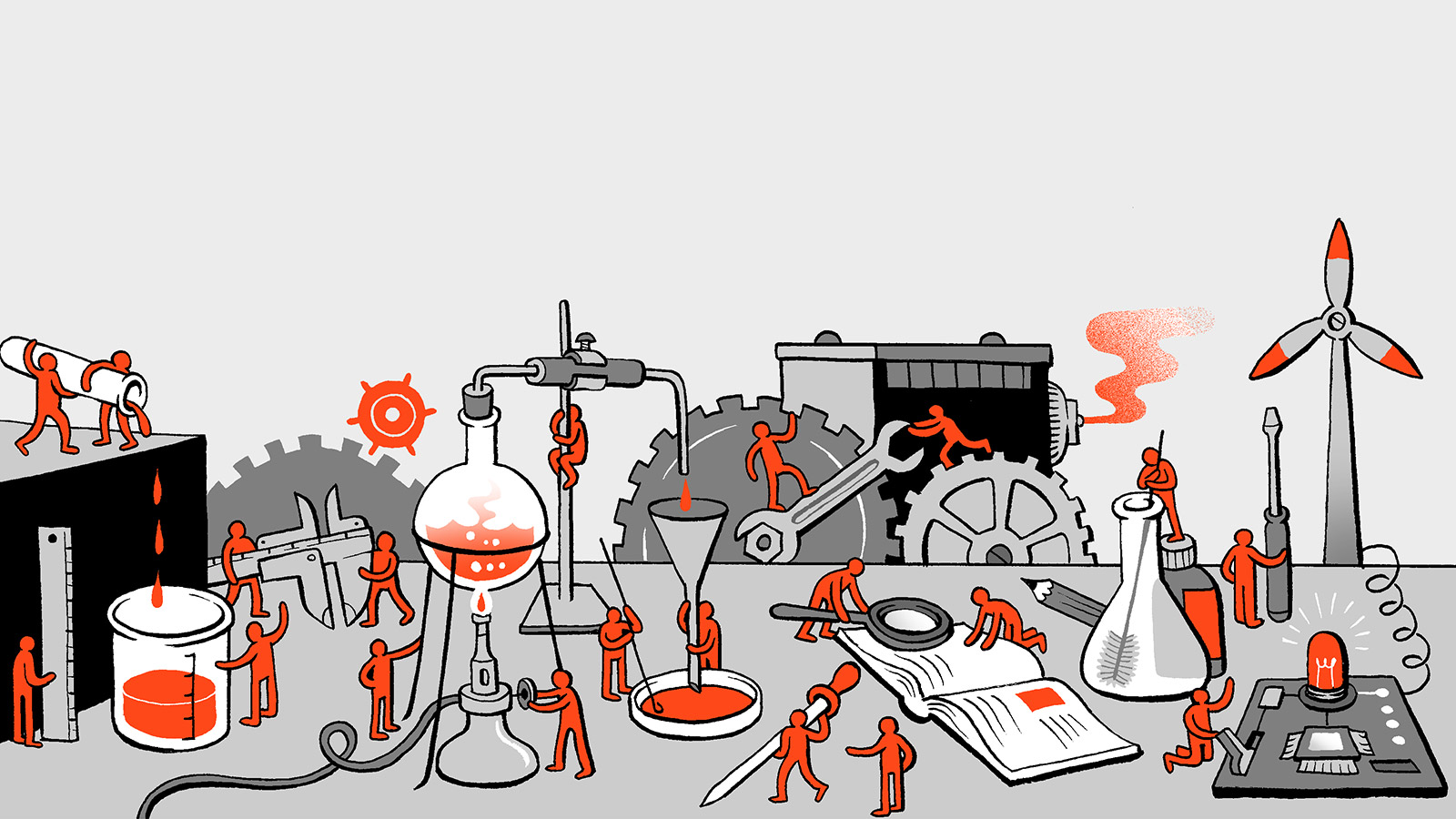Meet the Contributors to “Science Under Occupation”
Volume 23, number 1, Science Under Occupation
Mohammed Abusarhan
Mohammed Abusarhan is a masters student in biotechnology at Bethlehem University and Palestine Polytechnic University. He earned a degree in Biology from Bethlehem University. Since 2017, he has worked at the Palestine Museum of Natural History as a Museum Biologist conducting animal collecting, taxidermy, and identification. His research interests are focused on conservation, museum digitization, biodiversity databases, and bat echolocation. He has published several research articles and spent the summer of 2019 in Germany in a prestigious laboratory as an exchange researcher.
Sam Anderson
Sam Anderson is a Brooklyn, New York, native and a founding member of the Coalition for Public Education and the National Black Education Agenda. He is the author of several books and essays on science, technology, and the history of slavery, among them The Third World Confronts Science and Technology and The Black Holocaust for Beginners. He was an editor at Black Dialog, NOBO Journal, and The Black Activist. He was the first chair of a Black Studies department in 1969–70 at Sarah Lawrence College and taught mathematics, science, and Black history at SUNY Old Westbury, City College of New York, New York University, Rutgers University, and Brooklyn College. He has been active in the civil rights and Black liberation movement since 1964 as a member of the Student Non-Violent Coordinating Committee, the Black Panther Party, and the Black reparations movement. You can find his writing at blackeducator.org.
Bolívar Aponte Rolón
Bolívar Aponte Rolón is a PhD student studying bacterial and fungal endophytic communities in tropical forests and mangrove ecosystems. His research interests are, broadly, tropical ecology, agroecology, mycology, and myrmecology. He completed his undergraduate studies in political science at the University of Puerto Rico, Río Piedras where he participated in the student movement of the early 2010s and participated in community organizing regarding issues of environmental justice in southern Puerto Rico. Since Hurricane María hit Puerto Rico in 2017, he has served as co-coordinator of the Science for the People Puerto Rico Solidarity Working Group.
Michèle Audin
Michèle Audin was born in 1954 in Algiers. She is a French mathematician working on symplectic geometry. She was professor at Strasbourg University. She is also a writer and has published several novels, notably Une vie brève (about her father Maurice Audin), Cent vingt et un jours (published in English as One Hundred Twenty-One Days by Deep Vellum), and Comme une rivière bleue (about the 1871 Paris Commune). She is interested in history, literature, and their relationship.
Katherine L. Bryant
Katherine Bryant is the secretary of Science for the People and a postdoctoral fellow at the Wellcome Centre for Integrative Neuroimaging at the University of Oxford. During her PhD she helped organize undergraduates, graduate students, and faculty to fight against austerity measures implemented by the university administration. In addition to conducting research on the evolution of the human brain, she works to promote the work of feminist neuroscientists through the Neurogenderings group, and to support and advance the work of Science for the People.
Chuckie Calsado
For the past several years Chuckie Calsado has been part of different collectives, first, an art collective and, currently, a science collective. He has taken inspiration from these groups and as a result most if not all of his works are informed by the objectives of the collective—that science and art should work together in attaining social justice.
Dr. Mudasir Firdosi
Mudasir Firdosi is a Kashmiri psychiatrist, health advocate, writer, and poet. He completed his medical degree and postgraduate training in psychiatry in Jammu and Kashmir. He is a member of the Royal College of Psychiatrists, London and is currently working as a consultant Psychiatrist and Honorary Senior Lecturer at St George’s, University of London. He is a researcher and has published on trauma and post-traumatic stress disorder in Kashmir. He writes regularly on varied issues including mental health, human rights, conflict and psychological distress, and medical education.
Sara Giordano and Angela Willey
Sara Giordano is assistant professor at Kennesaw State University specializing in feminist science studies. Dr. Giordano received their PhD in neuroscience from Emory University and previously worked as an ethics consultant for the Centers for Disease Control and Prevention . Their areas of interest are in the politics and ethics of science with a special focus on the democratization of science.
Angie Willey is associate professor of Women, Gender, Sexuality Studies at UMass Amherst, working at the intersections of queer feminist theory and science studies. Her work on non/monogamy, colonial sexual science, and critical materialisms has appeared in Feminist Studies; Signs; Feminist Formations; Journal of Gender Studies; Science, Technology, and Human Values; and Sexualities and in edited collections on monogamy, on materialism, and on the science of difference. She is author of Undoing Monogamy: The Politics of Science and the Possibilities of Biology (Duke University Press, 2016) and co-editor of Queer Feminist Science Studies: A Reader (University of Washington Press, 2017).
Angie and Sara have been collaborating on activism, science, and other life endeavors for the last fifteen years.
Emily T. Hamilton
Emily Hamilton is assistant professor of the history of science at the University of Massachusetts. Her research focuses on the cultural and political history of mathematics education reform in the United States. She has worked and taught extensively on a wide variety of topics in the history of science, technology, mathematics, and medicine, as well as in oral history methods and philosophy.
Ragina Johnson
Ragina Johnson is a Native activist, socialist, mom, and graphic designer living in Ramaytush Territory, the lands of the Ohlone and Muwekma people in the Bay Area. Her relatives are from the Otoe-Missouria Tribe and Ojibway from the Turtle Mountain Band of Chippewa Indians. Ragina has been active with Science for the People in the Bay Area and is currently involved in struggles for Native liberation, immigrant, and environmental justice.
Hubert Murray
Hubert Murray is an architect with experience working on projects in the United States, Europe, Africa, and the Middle East. His portfolio includes public housing, schools, highway infrastructure, university campus planning, and urban design. Most recently he has worked with a Massachusetts-based hospital network developing designs that anticipate the effects of climate change. He has taught in London, Nairobi, and Boston and is a guest critic at schools of architecture in Boston. He is a fellow of the American Institute of Architects. As a board member of 1for3, he is interested in early childhood education and environmental and community health programs in Aida Camp in Palestine.
Omar Pérez Figueroa
Omar Pérez Figueroa is a third-year doctoral student in the Urban Planning and Public Policy Program at the University of California, Irvine. Omar graduated cum laude in 2010 with a BA in Social Sciences from the University of Puerto Rico, Río Piedras. He possesses a master’s degree in Water, Interdisciplinary Analysis, and Sustainable Management from the Universitat de Barcelona. His research interests are focused on understanding how grassroots movements and underrepresented communities deal with environmental inequities, with a special focus on water issues. He is a 2011 Truman Foundation Fellow. His most recent project focuses on how social networks can be used as a model to reduce communities’ vulnerability to environmental hazards such as floods and hurricanes from an environmental justice perspective.
Mazin B. Qumsiyeh
Mazin Qumsiyeh is a professor and researcher at Bethlehem and Birzeit Universities. He previously served on the faculties of the University of Tennessee, Duke University, and Yale University. He and his wife returned to Palestine in 2008 to start a number of institutions and projects, including the Palestine Institute for Biodiversity and Sustainability (PIBS) at Bethlehem University. He, his wife, and volunteers and staff at PIBS have “joyful participation in the sorrows of this world” and make a difference for sustainability of nature and human communities.
Andrea Natalia Rivera Rosario
Andrea Natalia Rivera Rosario is an undergraduate student at the University of Puerto Rico, Río Piedras. She is currently a Cell and Molecular Biology major with a minor in Women & Gender Studies, as well as Medical Humanities. She is passionate about scientific research, women’s rights in Puerto Rico, and community education.
Hilary Rose and Steven Rose
Hilary Rose is a sociologist of science, Steven Rose a neuroscientist. Their first joint book, Science and Society, published in 1969, demanded the democratic accountability of science. This demand, plus the anti-war movement’s rage against CBW led to the formation of the British Society for Social Responsibility in Science. Science’s androcentricity and worse, led Hilary to write Love, Power and Knowledge (1994), proposing a feminist science. They were central in the Academic Boycott of Israel in the 2000s. Their most recent books are Genes, Cells and Brains (2012) and Can Neuroscience change our Minds? (2016). Currently they are writing their memoirs.
Raja Sharaf
Raja Sharaf is an audiologist and speech-language pathologist from Gaza, Palestine. She graduated in 1996 and has been working in the field for twenty years.
Ethan Siegel
Ethan Siegel is a PhD astrophysicist and former professor who writes about and communicates science for a living. He has written two books: Treknology and Beyond the Galaxy, and has written the column Starts with a Bang since 2008, presently hosted at Forbes.com.
Jake Silver
Jake Silver is a cultural anthropologist completing his PhD at Duke University. His research concerns how atmospheric and interstellar realms are a part of colonial and anticolonial struggle in Israel/Palestine; in particular, how these volumetric, seemingly faraway fields come to condition the everyday ways that we grasp the forms and reaches of empire as well as the political possibilities (on our planet and beyond) that can take shape in their wake.
Sero Toriano Parel
Sero Toriano Parel (they/siya/Mx.) is a founding member of the Association for Filipino Scientists in America, a representative of the New Jersey chapter of the International Coalition for Human Rights in the Philippines, and a PhD student in neuroscience at Princeton University. Sero is from Quezon City, Philippines, by way of Louisville, Kentucky. Forced to migrate and brought up working class, they write from their lens as a queer, non-binary, proletarian internationalist Filipinx. They are broadly interested in resilience and revolution, from the brain to oppressed and exploited peoples. Sero can be reached at parel@princeton.edu or twitter.com/mx_sero.
Erik Wallenberg
Erik Wallenberg is a PhD candidate in the History Program at CUNY Graduate Center. His research is focused on the portrayal of environmental crises, politics, and science in activist theatre. He has taught classes in environmental history, global history, and environmental justice at Brooklyn College and the University of Vermont and is acquisitions editor at Science for the People.
Brian Ward
Brian is an educator, socialist and activist who lives in Madison, Wisconsin (occupied Ho-Chunk Land), and has lived and worked on Pine Ridge Indian Reservation, home of the Oglala Lakota Nation. He contributed to the book 101 Changemakers: Rebels and Radicals Who Changed U.S. History and his writing has appeared in The Nation, Truthout, New Politics, Socialist Worker, International Socialist Review and more.
Thomas Zauner
Thomas Zauner shifted from quantum physics to science and technology studies in Vienna, Austria, and works as an activist and organizer.





